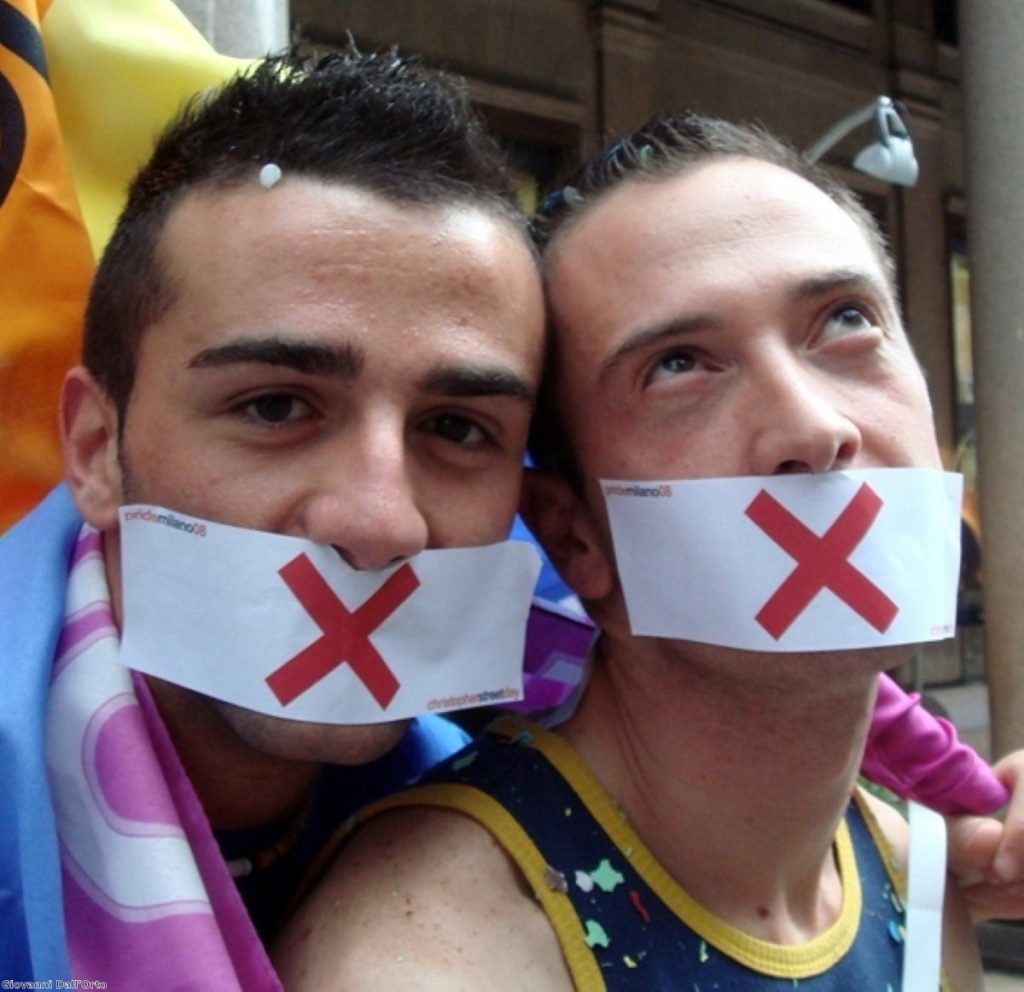Facing down the church: Gay marriage process begins
By Ian Dunt Follow @IanDunt
The consultation widely expected to lead to gay marriage has been initiated by the Home Office, despite protest from religious leaders.
The 12-week consultation will include an option of retaining the status quo, but the vocal support of the prime minister and home secretary strongly suggests the plans will become law before the next general election.
"Should two people who care deeply for each other, who love each other and who want to spend the rest of their lives together be allowed to marry?" Theresa May wrote in the Times today.


"That is the essential question behind the debate over the government’s plans to extend civil marriage to same-sex couples."
The consultation comes amid reports that Tory chief whip Patrick McLoughlin told right-wingers there would be a free vote on the issue last night.
That seems highly likely. Governments rarely impose a whip on moral issues and any change in the law could survive a substantial Tory rebellion given the support it would receive from Labour and Liberal Democrat MPs.
The consultation paper only covers civil marriages for gay and lesbian couples. Religious buildings could not be used, even when the leaders wished to offer the ceremony.
"At the moment Theresa May has ruled out allowing any church to conduct a same sex marriage. I believe that is the wrong approach," commented Yvette Cooper, shadow home secretary.
"If we really support the institution of marriage and want to welcome more people into it, then government and parliament should not deny the Quakers, the Unitarians and other churches who want to celebrate gay marriage the chance to do so."
Similar arguments were made by gay rights campaigner Peter Tatchell, who also criticised the restrictions on heterosexuals taking civil partnerships.
"While we welcome the commitment to legalise same-sex civil marriages, we are unhappy that the government intends to maintain the ban on heterosexual civil partnerships and the ban on religious same-sex marriages, even if faith organisations wish to conduct them," he said.
"This is not equality. It perpetuates discrimination."
The plans do not include offering heterosexual couples civil partnerships, as demanded by some equality campaigners. Gay and lesbian couples currently in a civil partnership could 'upgrade' to a marriage, however.
The reform would only affect England and Wales, not Northern Ireland or Scotland.
The decision to hold the consultation comes despite an intensified campaign from religious leaders, particularly in the Catholic Church, where congregations heard a letter from two archbishops arguing against the change last Sunday.
"There would be no recognition of the complementarity of male and female or that marriage is intended for the procreation and education of children," wrote archbishops Vincent Nichols and Peter Smith.
The Archbishop of Canterbury also warned against the move, although in less colourful terms than his Catholic colleagues, when he said the law was more progressive than the current national mood.









